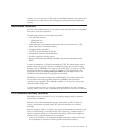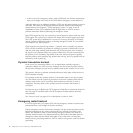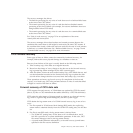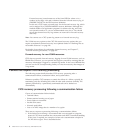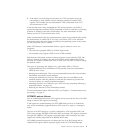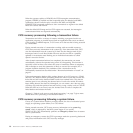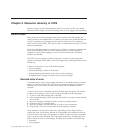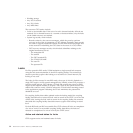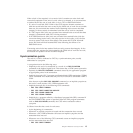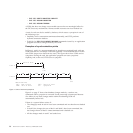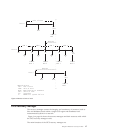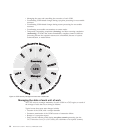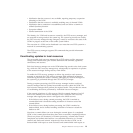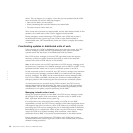
Chapter 2. Resource recovery in CICS
Before you begin to plan and implement resource recovery in CICS, you should
understand the concepts involved, including units of work, logging and journaling.
Units of work
When resources are being changed, there comes a point when the changes are
complete and do not need backout if a failure occurs later. The period between the
start of a particular set of changes and the point at which they are complete is
called a unit of work (UOW). The unit of work is a fundamental concept of all CICS
backout mechanisms.
From the application designer's point of view, a UOW is a sequence of actions that
needs to be complete before any of the individual actions can be regarded as
complete. To ensure data integrity, a unit of work must be atomic, consistent,
isolated, and durable.
The CICS recovery manager operates with units of work. If a transaction that
consists of multiple UOWs fails, or the CICS region fails, committed UOWs are not
backed out.
A unit of work can be in one of the following states:
v Active (in-flight)
v Shunted following a failure of some kind
v Indoubt pending the decision of the unit of work coordinator.
v Completed and no longer of interest to the recovery manager
Shunted units of work
A shunted unit of work is one awaiting resolution of an indoubt failure, a commit
failure, or a backout failure. The CICS recovery manager attempts to complete a
shunted unit of work when the failure that caused it to be shunted has been
resolved.
A unit of work can be unshunted and then shunted again (in theory, any number
of times). For example, a unit of work could go through the following stages:
1. A unit of work fails indoubt and is shunted.
2. After resynchronization, CICS finds that the decision is to back out the indoubt
unit of work.
3. Recovery manager unshunts the unit of work to perform backout.
4. If backout fails, it is shunted again.
5. Recovery manager unshunts the unit of work to retry the backout.
6. Steps 4 and 5 can occur several times until the backout succeeds.
These situations can persist for some time, depending on how long it takes to
resolve the cause of the failure. Because it is undesirable for transaction resources
to be held up for too long, CICS attempts to release as many resources as possible
while a unit of work is shunted. This is generally achieved by abending the user
task to which the unit of work belongs, resulting in the release of the following:
v Terminals
v User programs
© Copyright IBM Corp. 1982, 2010 13



